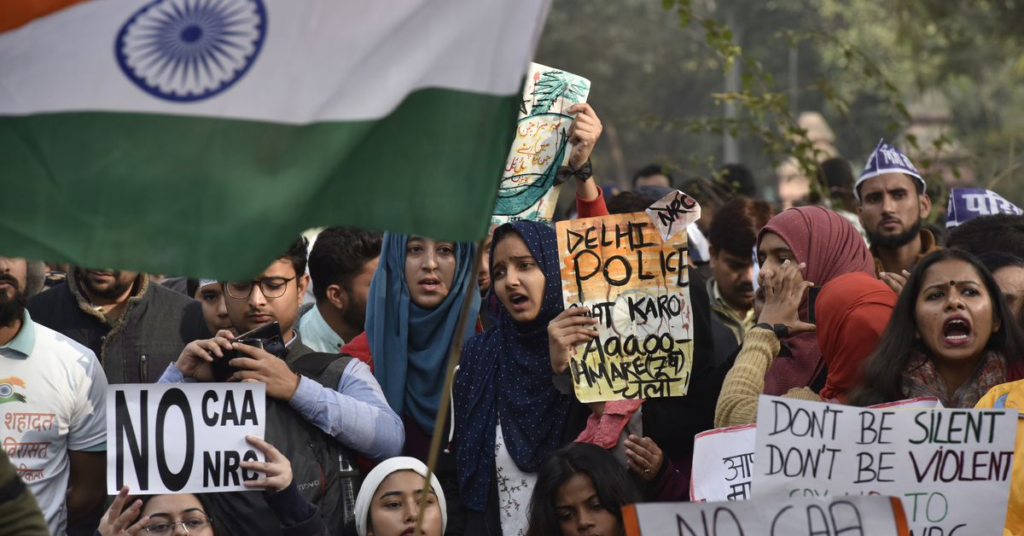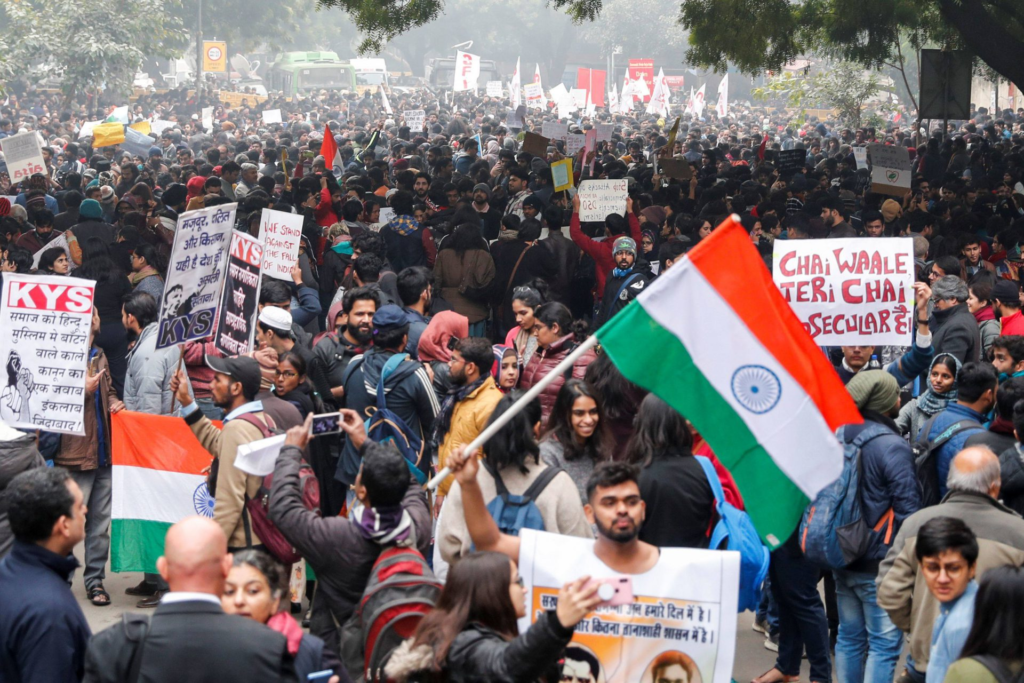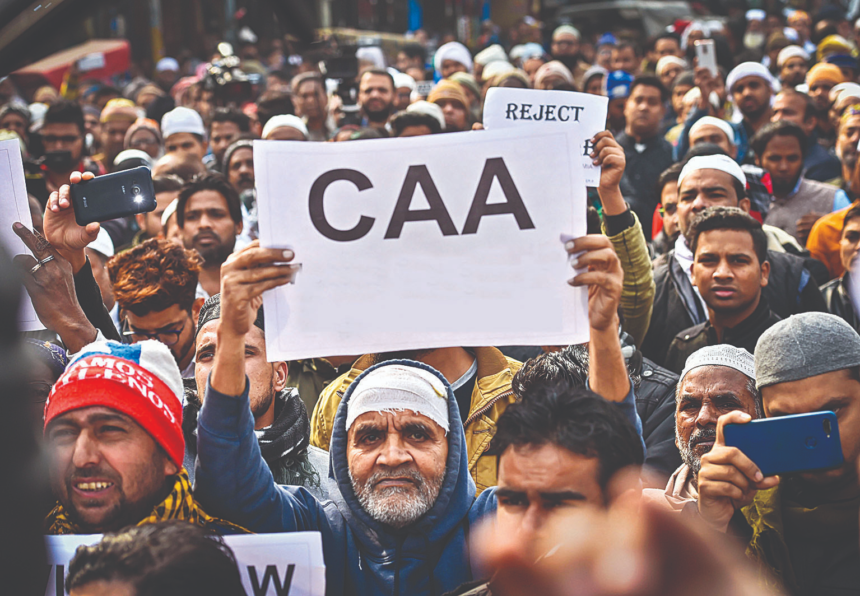Citizenship Amendment Act (CAA) rules : Home Minister Amit Shah stated that the new regulations will allow minorities in Pakistan, Bangladesh, and Afghanistan who have been persecuted for their religious beliefs to become citizens.
Citizenship Amendment Act rules : Introduction
The Citizenship Amendment Act (CAA) has been a subject of extensive debate and discussion since its inception. Aimed at providing a pathway to Indian citizenship for persecuted minorities from neighboring countries, the Act has now been further delineated through the notification of rules by the Central government. Home Minister Amit Shah, in a statement, emphasized the significance of these rules, asserting that they will facilitate minorities facing religious persecution in Pakistan, Bangladesh, and Afghanistan to acquire Indian citizenship.
ALSO READ : NPCIL Recruitment 2024 : All You Need To Know For An Exciting Opportunity

Eligibility criteria under section 6B
According to the rules, individuals eligible to apply for citizenship under Section 6B must fulfill certain criteria, which include :
- Being of Indian origin.
- Being married to an Indian citizen.
- Being a minor child of an Indian citizen.
- Having parents who are registered as citizens of India.
- Being born to parents who were citizens of Independent India.
- Being registered as an Overseas Citizen of India (OCI) Cardholder.

Special documents required
Applicants seeking Indian citizenship must submit two special documents along with their application. These documents include :
- An affidavit verifying the correctness of the statements made in the application, accompanied by an affidavit from an Indian citizen testifying to the applicant’s character.
- A declaration from the applicant affirming adequate knowledge of one of the languages listed in the Eighth Schedule of the Indian Constitution.

Procedure as per CAA rules
The procedure outlined in the CAA rules for obtaining citizenship is as follows :
- Applicants are required to submit their applications electronically to the Empowered Committee through the District Level Committee, as notified by the Central government.
- The District Level Committee, headed by the Designated Officer, verifies the submitted documents along with the application.

- The Designated Officer administers the oath of allegiance to the applicant as specified in the Second Schedule to the Citizenship Act, 1955, and forwards the same electronically to the Empowered Committee.
- In cases where an applicant fails to appear in person despite opportunities provided, the District-Level Committee forwards the application to the Empowered Committee for consideration of refusal.
- The Empowered Committee scrutinizes the application to ensure completeness and compliance with the eligibility conditions specified under Section 6B.
- Upon satisfaction with the applicant’s suitability, the Empowered Committee may grant Indian citizenship after conducting necessary inquiries.

Empowering minorities : Amit Shah’s vision
Home Minister Amit Shah has been a vocal advocate for the CAA, emphasizing its significance in empowering persecuted minorities from neighboring countries. The recent notification of rules reflects the government’s commitment to fulfilling its promises and upholding the ideals enshrined in the Indian Constitution.
In his statement, Shah reiterated the importance of the CAA in providing relief to Hindus, Sikhs, Buddhists, Jains, Parsis, and Christians facing religious persecution in Pakistan, Bangladesh, and Afghanistan. By streamlining the citizenship acquisition process, the CAA seeks to offer refuge and opportunity to those in need.

Conclusion
The notification of rules under the Citizenship Amendment Act delineates the eligibility criteria, document requirements, and procedural aspects for obtaining Indian citizenship. While the Act aims to provide refuge to persecuted minorities, the implementation of these rules will play a crucial role in facilitating the citizenship process for eligible individuals. As India extends its hand to those in need, it reinforces its commitment to humanitarian values and upholding the principles enshrined in its constitution.
To explore more news : Click Here
ALSO READ : IIM Bodh Gaya And Medanta Forge Strategic Alliance To Revolutionize MBA Hospital & Healthcare Management




































